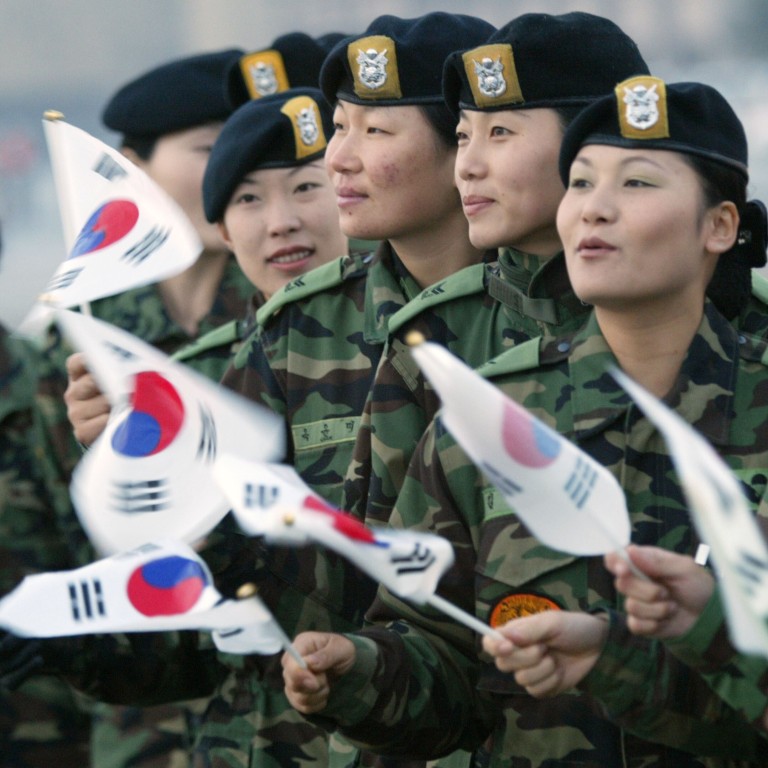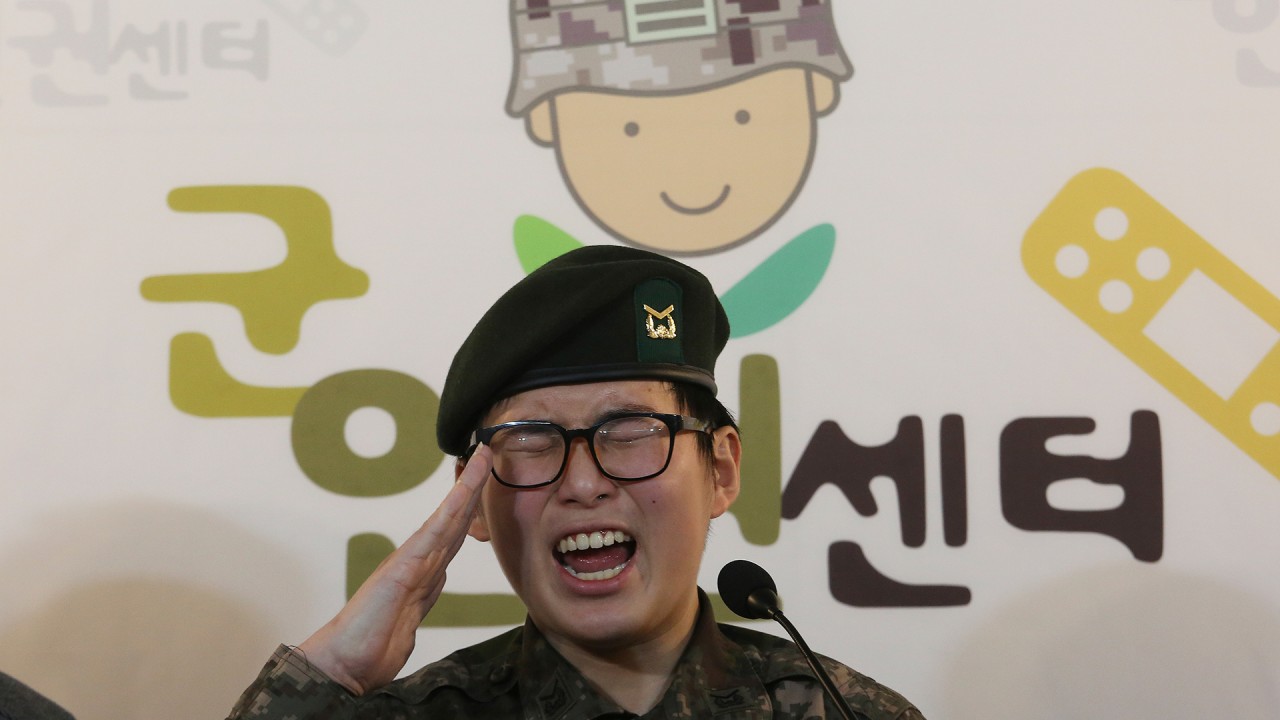
In South Korea, women in military becomes gender battleground
- A 2022 presidential hopeful suggested mandatory military service for women would promote gender equality amid low birth rates
- But the gender equality minister said the environment for serving in the military needs to be improved as a petition demanding female conscription gains steam
The issue has been the subject of wide discussion since April, when ruling party lawmaker and 2022 presidential hopeful Park Yong-jin reacted to local election defeats by suggesting mandatory military service for women would promote gender equality.
Chung Young-ai, who leads the Gender Equality and Family Ministry, on Monday said the direction of the argument was “problematic”.
“The debate on women serving in the military didn’t come from trying to achieve gender equality, but from voices who are asking women to experience the same disadvantages that men did,” she said.
Park’s proposal touched on a divisive issue that in some way affects almost every family in South Korea, which is technically still at war with the North and shares one of the world’s most militarised borders.
Why are South Korea’s young men turning against Moon Jae-in?
Moon’s progressive government has seen support among women erode ahead of a presidential election just 10 months away and is trying to win back the crucial voting block to keep the top office when Moon’s single, five-year terms ends.
Conscription has fostered employment perks that can benefit men when they complete their military service – and put women at a disadvantage as they start their careers.
The wage gap between the sexes ranks among the largest in the developed world and clouds the country’s long-term economic prospects.
“The way we see it, our youth goes through struggles by serving in the military and we need to improve the environment for serving,” the academic-turned-minister said.

03:47
Death of South Korea’s first known transgender soldier sparks anger, calls for reform
“This includes giving due credit to those that have finished their service,” she said. “But this shouldn’t justify discriminating against those who did not serve in the military, such as women or people with disabilities.”
South Koreans must focus on solving chronic problems such as income disparity, a low birth rate and systemic gender-based discrimination that rank among the worst in the developed world and put strains on growth, Chung said.
“Until 2019, women’s economic activity gradually increased and the gender wage gap showed some signs of improvement,” Chung said.
South Korea bullying claims leap from sports world to entertainment
“But as we faced the pandemic in 2020, the employment rate of women decreased significantly compared to that of men. Many women have suffered more severely under the pandemic than men because they are employed in service sector jobs where face-to-face contact is essential.”
The government has struggled to meet some of its own goals. Moon, who pledged to be a “president for gender equality”, promised half his cabinet members would be women.
He never reached that mark and now only has four female ministers in a cabinet of 19. South Korea ranks near the bottom of the world with only 19 per cent of its seats in parliament being occupied by women, according to Inter-Parliamentary Union data.

Chung said the country’s low birth rate “should be tackled from more of a gender equality platform”.
“There are various issues young people in South Korea must deal with if they were to have a child, such as housing, childcare and safety. The cost is just too high,” she said.
“And still, many women are primarily responsible for taking care of children at home, making many hesitate about having a child.”
Chung said her ministry was working to help women continue having careers even if they choose to have children.
“We shouldn’t exclude anybody from our society and should work toward expanding the beneficiaries through our equality policies,” she said.

